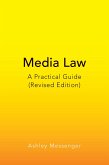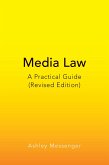
eBook, PDF
13. Juni 2019
Peter Lang Inc., International Academic Publishers
| eBook, ePUB | 62,95 € |

Ähnliche Artikel

80,95 €**
71,95 €
**Preis der gedruckten Ausgabe (Gebundenes Buch)
Sofort per Download lieferbar
VersandkostenfreieBook, PDF
16. April 2024
Peter Lang Inc., International Academic Publishers

102,95 €**
32,95 €
**Preis der gedruckten Ausgabe (Gebundenes Buch)
Sofort per Download lieferbar
VersandkostenfreieBook, PDF
21. Februar 2024
Peter Lang Inc., International Academic Publishers

36,95 €**
32,95 €
**Preis der gedruckten Ausgabe (Broschiertes Buch)
Sofort per Download lieferbar
VersandkostenfreieBook, PDF
26. Dezember 2024
Peter Lang Inc., International Academic Publishers

36,95 €**
32,95 €
**Preis der gedruckten Ausgabe (Broschiertes Buch)
Sofort per Download lieferbar
VersandkostenfreieBook, PDF
8. März 2024
Peter Lang Inc., International Academic Publishers

102,95 €**
32,95 €
**Preis der gedruckten Ausgabe (Gebundenes Buch)
Sofort per Download lieferbar
VersandkostenfreieBook, PDF
23. Juli 2024
Peter Lang Inc., International Academic Publishers

111,95 €**
32,95 €
**Preis der gedruckten Ausgabe (Gebundenes Buch)
Sofort per Download lieferbar
VersandkostenfreieBook, PDF
15. Juli 2024
Peter Lang Inc., International Academic Publishers

42,95 €**
38,95 €
**Preis der gedruckten Ausgabe (Broschiertes Buch)
Sofort per Download lieferbar
VersandkostenfreieBook, PDF
9. Mai 2023
Peter Lang Inc., International Academic Publishers

36,95 €**
32,95 €
**Preis der gedruckten Ausgabe (Broschiertes Buch)
Sofort per Download lieferbar
VersandkostenfreieBook, PDF
25. November 2024
Peter Lang Inc., International Academic Publishers

97,95 €**
88,95 €
**Preis der gedruckten Ausgabe (Gebundenes Buch)
Sofort per Download lieferbar
VersandkostenfreieBook, PDF
26. Mai 2023
Peter Lang Inc., International Academic Publishers
Ähnlichkeitssuche: Fact®Finder von OMIKRON
